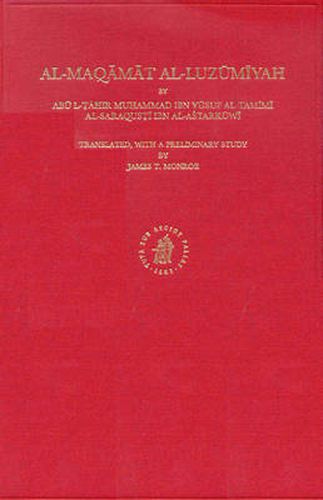Readings Newsletter
Become a Readings Member to make your shopping experience even easier.
Sign in or sign up for free!
You’re not far away from qualifying for FREE standard shipping within Australia
You’ve qualified for FREE standard shipping within Australia
The cart is loading…






Although the Arabic maqamah, a branch of the picaresque genre, was much cultivated in the Middle Ages, little is known about it aside from the works of al-Hamadhani and al-h ariri, its first two cultivators. This translation of the Maqamat al-luzumiyah by the twelfth-century Andalusi author al-Saraqusti makes available to Western scholars of narrative prose a hitherto little-known but important collection of Arabic maqamat. The Preliminary Study places this specific collection in the context of the overall maqama genre, it further places that genre in the contexts both of Arabic and of world literature, exploring the differences between the picaresque genre and the modern novel. It discusses the meaning of the work, shows the way in which it is original within its genre, and establishes its organic unity. Finally, it shows that late and post-classical Arabic literary works such as that of al-Saraqusti, which were composed during the so-called period of decadence, are not decadent at all, contrary to the opinion prevalent among scholars in the field.
$9.00 standard shipping within Australia
FREE standard shipping within Australia for orders over $100.00
Express & International shipping calculated at checkout
Although the Arabic maqamah, a branch of the picaresque genre, was much cultivated in the Middle Ages, little is known about it aside from the works of al-Hamadhani and al-h ariri, its first two cultivators. This translation of the Maqamat al-luzumiyah by the twelfth-century Andalusi author al-Saraqusti makes available to Western scholars of narrative prose a hitherto little-known but important collection of Arabic maqamat. The Preliminary Study places this specific collection in the context of the overall maqama genre, it further places that genre in the contexts both of Arabic and of world literature, exploring the differences between the picaresque genre and the modern novel. It discusses the meaning of the work, shows the way in which it is original within its genre, and establishes its organic unity. Finally, it shows that late and post-classical Arabic literary works such as that of al-Saraqusti, which were composed during the so-called period of decadence, are not decadent at all, contrary to the opinion prevalent among scholars in the field.